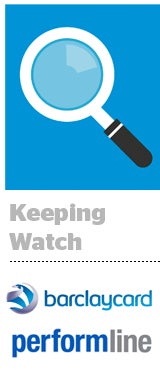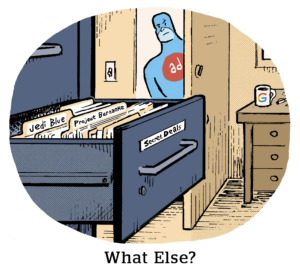 Beyond the morass of fraud and viewability hides another tripwire for advertisers: government regulation.
Beyond the morass of fraud and viewability hides another tripwire for advertisers: government regulation.
That’s why UK-based credit card issuer Barclaycard is getting proactive about compliance.
As a company that’s smaller than the competition and still making inroads in the US market, Barclaycard is particularly risk averse when it comes to regulatory issues.
To that end, Barclaycard has been working with marketing compliance tech company PerformLine since September to monitor its affiliate partnerships – Credit Karma and Bankrate being the two largest – as well as search, paid and organic ads and display, both desktop and mobile, for regulatory infractions, as well as brand safety issues.
On the viewability and fraud detection side, Barclaycard lets its agency, Maxus, handle the vendor relationships, among them Moat and Integral Ad Science.
PerformLine, which provides SaaS tech that crawls the web to help advertisers monitor their digital presence, announced several enhancements to its product suite on Tuesday, including the ability to track the entire remediation process from discovery to resolution. Barclaycard is taking advantage.
Although any advertising claims that could affect a consumer’s health or pocketbook come under the purview of the Federal Trade Commission (FTC), the consumer finance space is subject to an extra layer of regulation, the Consumer Financial Protection Bureau (CFPB), and is one of the most highly regulated industries out there.
Which is why complacency over compliance doesn’t pay. Since it was founded in 2011 as a result of the Dodd-Frank Wall Street Reform and Consumer Protection Act in the wake of the 2008 financial crisis, CFPB enforcement actions have been leveled at everyone from Bank of America, JPMorgan Chase and GE Capital to Discover, Capital One and American Express, resulting in more than $6 billion in remittances and collected fines.
“We have so many different offers and sometimes they’re quite complex,” said John L’Heureux, digital marketing manager in charge of SEO content performance engineering at Barclaycard US. “We need to monitor placement, we need to monitor copy – basically, we need to show that we’re monitoring the entire web and correcting any potential deviations on an ongoing basis. We also want to make sure that all of the content that exists about us is easy to digest and not misleading to the consumer in any way.”
For example, Barclaycard will purposely avoid superlatives in its ad copy – ”The best card you’ll ever have in your entire life!” – because overblown language walks the truth-in-advertising line and could be easily misconstrued. But outside its O&O, the world of bloggers and affiliates can feel “a bit like the Wild West,” L’Heureux said.
There was a time when all Barclaycard could do was run spot checks and hope it was catching the lion’s share of misrepresentations and other issues, but, as L’Heureux noted, “going with your gut is not a good thing when you’re talking about regulatory bodies.”
According to Barclaycard, PerformLine has crawled thousands of pages over the past year and made multiple millions of observations on behalf of the brand, flagging more than 300 issues in need of remediation. A typical display campaign for Barclaycard is around 80 million impressions.
Since working with PerformLine, L’Heureux has noticed a behavior shift among its affiliate partners. Namely, they’re more on their game.
“Before, they knew we could never cover the whole universe of traffic sources by ourselves,” he said. “But now, they know we’ll be remediating everything and they act differently as a result.”
But there are some new potential threats on the horizon, one of which is native advertising. Although the government hasn’t issued any regulations around native as of yet, FTC associate director of advertising Mary Engle told attendees at AdExchanger’s Clean Ads I/O conference in June that native could become a potential regulatory issue. Engle also intimated that the FTC would hold publishers accountable for helping create deceptive native ads.
Native is on PerformLine’s mind, as well, said company founder and CEO Alex Baydin. Several clients, including Bills.com, have already approached the company to monitor certain publishers of native ad content, among them smartlifestyletrends.com and onedollarsmarter.com.
“Given the nature of native, there is a likelihood to deceive consumers unless proper disclosures are presented in a clear and concise way,” Baydin said. “As the FTC and other regulators start to monitor and enforce on the native ad channel, we anticipate the demand for native monitoring by brands will skyrocket.”













